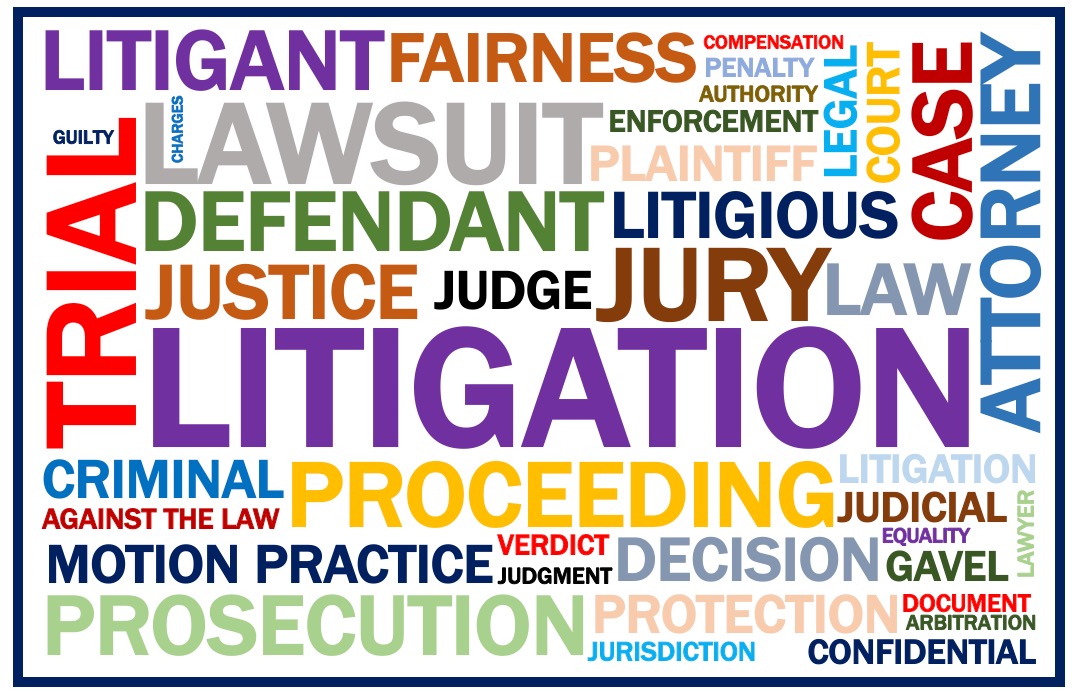If you are filing a lawsuit in court, you are involved in litigation. The term refers to the process of using the legal system to resolve disputes.
For most of us, the whole process can be very time-consuming, emotionally draining, and expensive.

Cornell Law School, in Ithaca, New York State, has the following definition of the term:
“Litigation refers to the process of resolving disputes by filing or answering a complaint through the public court system.”
Litigation comprises several legal procedures
The main litigation procedures are filing a complaint/petition, pleadings, discovery, motion practice, and trial.
-
Complaint/Petition stage
In this stage, the plaintiffs file their claims and the relief they are seeking. The plaintiff is the accuser.
-
Pleading stage
Defendants can then respond to the complaint. In most cases, they file an answer or motion to dismiss.
-
Discovery state
During this stage, the plaintiff can obtain evidence and other data from the defendant and vice-versa. This may involve written questions or interrogatories, requests for documents and files, and depositions.
In a deposition, a witness, who is under oath, takes the stand and answers questions. This is a crucial part of the litigation process – each party can gather data to support their defenses or claims.
-
Motion practice stage
Defendants and plaintiffs may ask the courts to make a decision on a specific issue during this stage. The court will look at the evidence presented and make a judgment.
-
Trial stage
If the parties have not yet resolved their dispute or reached a settlement, the litigation process will proceed to trial.
During the trial, plaintiffs and defendants present their arguments and evidence to a judge, and perhaps also a jury, who will then decide the case.
Get a good lawyer
If you are ever involved in litigation, try to get a good lawyer. It is a complex and challenging process that requires a top professional with strong advocacy skills. Before committing yourself to a legal representative, check their qualifications, experience, and track record (do they have a history of winning or losing cases?).
Litigation is just one option
Sometimes, litigation is not the best route to pursue. You should also consider arbitration or mediation, which are much cheaper, faster, and less emotionally draining.
